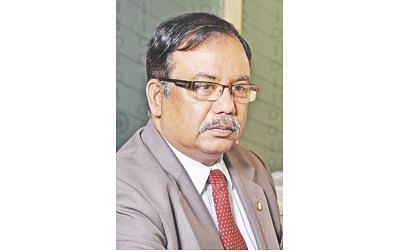3 years of a telecom regulator

Zia Ahmed was the second chairman of Bangladesh Telecommunication Regulatory Commission with an army background who tried to bring discipline to the sector and make it a revenue source for the government.
Ahmed, then a retired major general, joined the BTRC as its chairman in February 2009. Ahmed died yesterday at 3.30am from a cardiac arrest at United Hospital in Dhaka. He was 59.
Ahmed's last execution was the 10 second-pulse billing system for the mobile operators.
The operators vehemently opposed the regulation as it would hit their revenue earnings -- but the BTRC was strong enough to impose the regulation for the subscribers' best interests.
The regulation will take effect from tomorrow, with state-owned Teletalk having already introduced it.
The watchdog boss also attempted to introduce a quality of service (QoS) policy, a quality control framework for the operators -- but unfortunately it could not be realised during his lifetime.
“He was very progressive but the establishment didn't allow him to act,” Abu Saeed Khan, a telecom analyst, said on Facebook.
BTRC provided a number of telecom licences in the last three years, especially gateways licences and the international terrestrial cable licences badly needed by the business process outsourcing (BPO) offices of the country.
BTRC, under Ahmed's guidance, gave a much conservative suggestion of the number of new gateway licences to be granted, but the government disregarded it and gave 85 gateway licences.
The much-talked-about 2G licence renewal of the mobile operators for the next 15 years, too, happened under Ahmed's tenure, though the matter had to go to the prime minister's table for payment settlement.
Ahmed also intended to go for technology neutrality with regards to the upcoming third generation (3G) spectrum auction, meaning the awardees had the liberty to choose between the 3G or 4G (apparently much better technology than 3G) service.
“He seemed to want to do the right thing. But of course in the political and institutional circumstances of Bangladesh knowing the right thing to do in policy and regulation is not easy,” Rohan Samarajiva, chief executive of the Colombo-based ICT think tank LIRNEasia, said on Facebook.
On a negative note, the relationship between the telecom ministry and the BTRC became strained during his time at the office due to the division of power between the two entities.
Although the current government took away some of the powers from the regulator, including approval of licences and tariff plan of the service providers, via some amendments to the telecom law, the regulator never accepted the amendment easily.

 For all latest news, follow The Daily Star's Google News channel.
For all latest news, follow The Daily Star's Google News channel. 



Comments